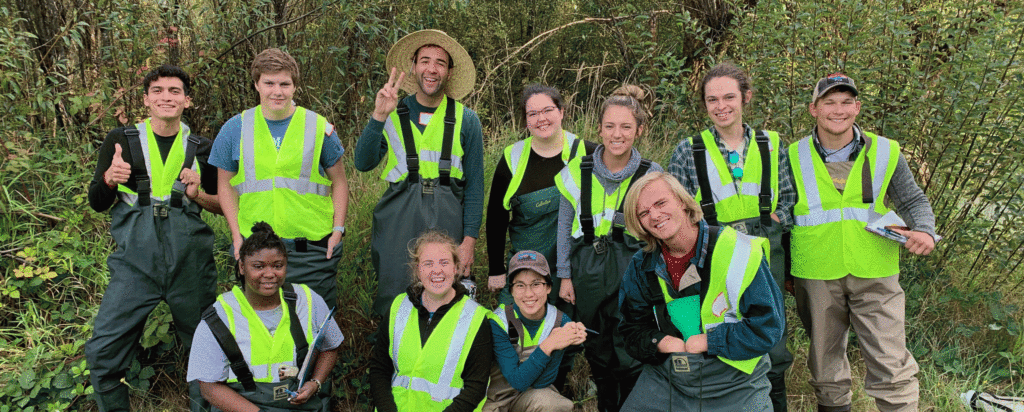Page 428 • (12,557 results in 0.093 seconds)
-
. Without such, students risk seeing computers and networks as “black boxes,” and lack understanding of the power, risks, societal impacts, and limitations of computing technology. Students who become leaders need to understand technology in order to practice thoughtful care for people, local and global communities, and the Earth. As Walker and Kelemen [1] articulate, “…computer systems have become a significant factor in contemporary life. Understanding this technology and its implications, therefore
-
spirit of invention that gave us Shakespeare, Molière, Racine, and Goethe. As universities added new fields of study, the earlier university curriculum came to be seen as its own discipline, termed Altertumswissenschaft, the “Science of the Antiquity,” in the 19th century. The result is a uniquely interdisciplinary field. Classics, the Humanistic Science, is the study of the language, literature, culture, history, philosophy, geography, archeology, intellectual accomplishments, science, religion
-
, Mathematics, Psychology, and Sociology & Criminal Justice. The program is administered by an Interdisciplinary Statistics Committee comprised of the chairs or chair-appointed designees of the departments listed above and chaired by its Mathematics representative. The statistics minor is administered by the Department of Mathematics. Students interested in a statistics minor are encouraged to discuss course selection with a statistics faculty member from any discipline. Minor16 semester hours, including
-

with our research directors, and are now completing our final draft to submit for editing. When you reflect on this experience, what stands out to you? AS: My projects were very specialized to what I am learning at PLU. It was very fun to stretch those muscles and expand on them. The most important thing I came away with was my admiration for how Icelanders view the earth and how those values affect their conservation efforts. When there is a deeply rooted connection to your land and its history
-

eyes could not grasp the splendour in its totality,” Ešenvalds wrote. “Looking at the sky, I fell backwards into the snow and could not help making a snow angel. Then I whistled and hummed the Latvian folksong on the arctic lights.” That night his multimedia symphony was born. Ešenvalds composed Northern Lights, a separate work for unaccompanied choir, water-tuned glasses and chimes for PLU’s Choir of the West in 2013. The choir premiered the work on tour that year and later performed it at the
-

environmental studies majors, there’s also important data to collect and analyze within a stone’s throw of the university’s campus.Clover Creek flows 14 miles through Parkland, Joint Base Lewis-McChord (JBLM) and Lakewood before emptying into Lake Steilacoom. Its watershed spans 74 square miles. Much of the watershed’s stream system is impaired by low levels of dissolved oxygen, warm water temperatures and bacteria. State and county agencies are working with a coalition of local stakeholders to study and
-

programming, cutting-edge evaluation tools and innovative operational systems and technical assistance to support all aspects of its integrated programs. Based in Tacoma, Degrees of Change is a national organization that serves students across the Pacific Northwest and Midwest. Of the students served, 90% are students of color, 70% are first-generation college students, and 80% are from low-income families. We love our communities and want to see them thrive in all their diversity. Tacoma Public Schools
-

powerlessness through empowerment and community.” Indivisible Gig Harbor is a highly inclusive group and one of its purposes is to guide individuals through this time of political confusion. Professor Albrecht discussed the role of education in that guidance: “We have literacy events, we have candidates come in and speak, and we educate members on how to research voting records for members of Congress. It takes public action to raise awareness.” Professor Rona Kaufman joined Indivisible Gig Harbor and
-
at least twice in the six sequential academic years beginning in 2024-2025; as part of the process, we’ll have an initial conversation with your chair or dean to determine how to best to fit a new or existing course into your schedule The Innovation Studies Committee will complete its review of your course proposal within two weeks and reply to you promptly. Grant Expectations – Stipend recipients are expected to do part-time work on their proposed course development project during the semester
-
. Trelstad will consider the possible contributions and limitations of Lutheran theology in addressing anti-Semitism, racism, and socio-political oppression in light of Luther’s writings on the Jews, Dietrich Bonhoeffer’s work in World War II Germany, and the Lutheran-led Namibian anti-apartheid struggle for independence in the 1980s and 1990s. Can Lutheran theology inspire action on behalf of the oppressed? Is it hamstrung by its own doctrines? Must Lutherans rely on other theologies in order to support
Do you have any feedback for us? If so, feel free to use our Feedback Form.


